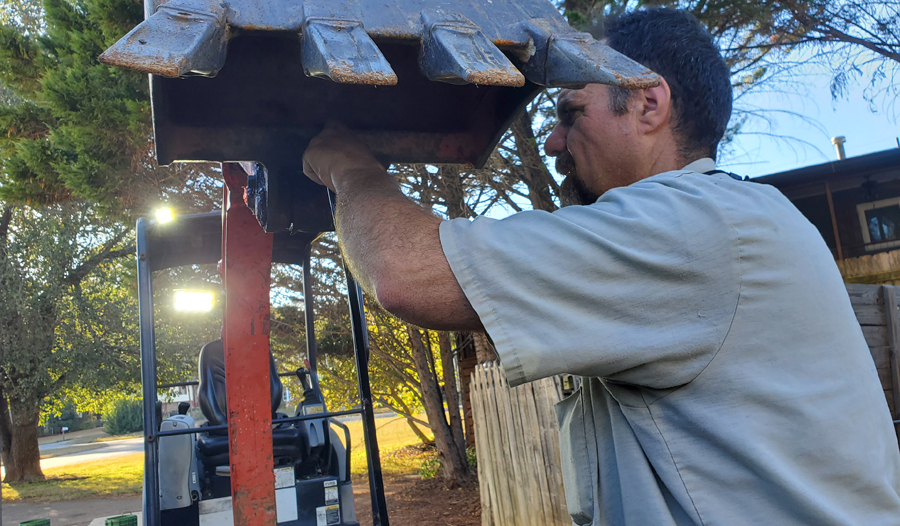
Ray Rzeplinski, a Chattanooga plumber, works on the bucket of a track hoe prior to digging up a septic tank in Hixson. (Photo David Tulis)
CHATTANOOGA, Tenn., Wednesday, Dec. 6, 2023 — Ray Rzeplinkski is being arraigned Monday in a case in which it is alleged he plea bargained a “possession of stolen property” misdemeanor as a young man into a felony, and has been knowingly lived his life as a “felon in possession of a weapon” – only to be caught now by the gears of justice.
By David Tulis / NoogaRadio Network

Coty Wamp is district attorney in Hamilton County, Tenn. (Photo Coty Wamp)
The case highlights the outworkings in our carceral state and the offense it takes when the prosecutor’s office – in Chattanooga overseen by Coty Wamp – is turned down in plea bargain offer.
Mr. Rzeplinski, who has Ben McGowan as state-appointed counsel, has refused to plea bargain. He has refused to be bullied by threats that if he didn’t plead with Miss Wamp, the federal prosecutor would launch its own prosecution of Mr. Rzeplinski for owning an apparently forbidden “short-barreled rifle.”
It appears feds were not interested in the case. Miffed, Miss Wamp obtained a superseding indictment, stacking dozens more charges upon the pipe-necked plumber so that they total 57, most all felonies, including the SBR weapon.
Mr. Rzeplinski says in a text message the felony convictions would total 1,710 years with 30 years max per charge.
Details of the case indicate his only defense is the doctrine of estoppel by entrapment, aka reliance defense. Meaning, he relies on word of state of Tennessee itself to know he is not a felon. That would include 2 rounds of concealed carry permits, OKs for retail gun purchases, his plumber’s license, numerous contracts with government entities, and other proofs that should work to “estop” the grinding blades of state-oriented justice.
This case calls for jury members who understand their rights in the law to judge the facts of the case, and the law. The right to strike the use of a criminal statute exists in Tenn. const. art. 1, sect. 19, on press rights. The process of voting one’s conscience to nullify bad law or bad application of law is called jury nullification.

